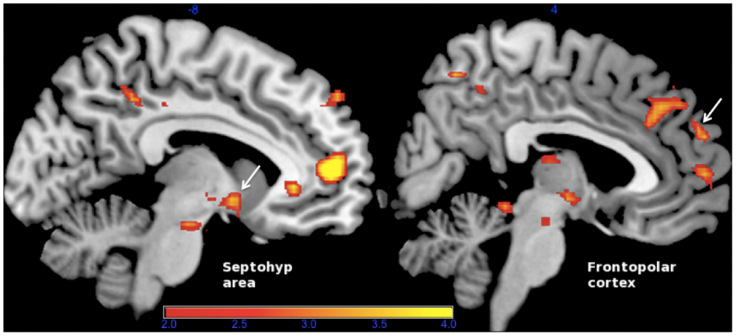Brazilian Scientists Develop Blade Runner-Style Tests that Could Cure Psychopaths

Remember the empathy detection devices in the 1982 Harrison Ford film Blade Runner? Well Brazilian scientists have now succeeded in helping people to develop and increase feelings of empathy, which could pave the way for reprogramming people suffering from neuropsychiatric conditions like postnatal depression or psychopathy.
The researchers from three Brazilian universities – the D'Or Institute for Research and Education (IDOR), Universidade Federal do ABC and Gaffrée e Guinle University Hospital – and King's College in London achieved this using brain scanners and computer software to identify patterns in brain activity from different emotions such as empathy, pride and neutral thoughts.
Their research, entitled "Voluntary Enhancement of Neural Signatures of Affiliative Emotion Using fMRI Neurofeedback" is published in open access journal PLOS One.
Similar to the Voight-Kampff machine used in Blade Runner to distinguish humans from androids, the researchers scanned the brains of 25 participants while asking them emotionally charged questions.

Once the software program learned to pick up on the brain activity patterns associated with different emotions, the volunteers were then instructed to control and hold particular thoughts and feelings in their minds.
Each participant was shown a blurry image as part of the experiment.
By giving the volunteers feedback on how strong their emotions were, the scientists were able to train each person to hold and develop feelings of empathy, which then made the image become clearer.
"Our results demonstrate that neurofeedback can be used to enhance one's ability to achieve distributed neural signatures of tenderness/affection," the authors wrote in the paper.
"These findings represent an important step in the quest for the development of brain-machine interfaces allowing for voluntary modulation of the neural correlates of affiliative emotions.
"Allowing individuals conscious access to these neural processes could pave novel ways of fostering pro-social behaviours, by enhancing social attachment, trust, helping and care for others."
The researchers plan to carry out a follow-up experiment to see how the brains of psychopaths respond to these tests and whether prosocial emotions and behaviour can be enhanced.
© Copyright IBTimes 2025. All rights reserved.






















